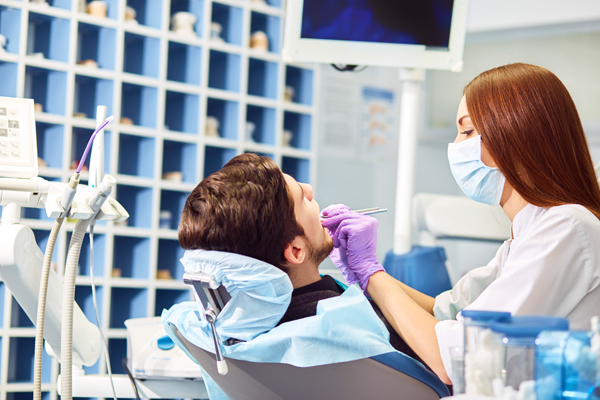What Food Can I Eat After a Root Canal Treatment?

A root canal is a form of surgery that is performed under either local or general anesthesia. Therefore, you need to follow your dentist’s orders after the procedure. That includes proper cleaning, how to reduce the swelling and even the foods you eat. The last thing you want is to irritate the area and then experience a secondary problem. So, stick to what your dentist says you can and cannot eat.
Avoid specific types of food
Just as with any type of surgery, there is a healing period involved with a root canal. For that reason, patients want to avoid eating foods that would put too much pressure on the newly crowned tooth. They also need to stay away from things that could promote continued bleeding. Overall, what a person consumes plays a significant role in how well their mouth heals.
1. Hard foods
For starters, patients who had a root canal done need to avoid any type of hard foods. These include crackers, potato chips, nuts, carrots, candy and even ice. With these foods, a person could bite down hard on the tooth. Not only could that cause pain, but it could also extend the healing time. Even if tempted, it is better to avoid anything hard, at least for a week or until the dentist says it is okay.
2. Chewy foods
After having a root canal treatment performed, the goal is to give the area time to heal. That means not doing anything that would irritate it. For that reason, a person should avoid any kind of chewy food. Apart from taffy and chewing gum, this includes steaks and other meats. Again, the goal is to avoid putting pressure on the tooth.
3. Hot and cold foods
Although a root canal is a common form of oral surgery performed on millions of people each year, it is still surgery. The drilling, scraping and cleaning that the dentist does usually makes the tooth more sensitive to hot and cold. As with other post-surgery symptoms, this subsides quickly. However, during the healing phase, a person should avoid eating or drinking anything extremely cold or hot.
4. Spicy foods
Surgery, even oral surgery, is a funny thing in that many people wake up wanting something spicy to eat. Whether nachos with jalapenos, homemade chili or a big burger topped with chipotle sauce, anything spicy is a no-no following a root canal. Instead, a patient can make a list of the type of foods they want after healing and focus on that until the time is right.
5. Alcohol
For patients who enjoy an adult beverage from time to time or a glass of wine with dinner — it is important to wait. The problem is that alcohol promotes bleeding. While people have only slight bleeding after a root canal, consuming a beer or cocktail could change that. Therefore, they should stick with non-alcoholic beverages until the dentist advises otherwise.
Take care of yourself after a root canal
After having a root canal, your dentist or endodontist will provide you with a complete list of foods to avoid while healing. You will also receive a list of permitted food, which looks pretty good. For about a week, you can enjoy milkshakes, yogurt, ice cream, soup and other delicious foods. Take care of yourself to avoid running into another problem.
Request an appointment here: https://www.mfgrassodds.com or call Michael F. Grasso DDS at (636) 777-7700 for an appointment in our Chesterfield office.
Check out what others are saying about our services on Yelp: Read our Yelp reviews.
Recent Posts
Periodontal gum disease treatment helps prevent the progression of gum disease, which protects your oral and overall health. Periodontal disease, commonly referred to as gum disease, affects the tissues supporting the teeth, potentially leading to tooth loss if left untreated. A peridontist's early diagnosis and treatment of this condition can significantly improve your long-term gum…
If a spouse or other loved one has been kept up at night because of snoring, it may be time to see if sleep apnea is a problem. While many people do not think of snoring as a medical issue, it can signify sleep apnea or a partially obstructed airway. Even a minor airway obstruction…
If you experience soreness or pain in the jaw, you may want to talk with your dentist about TMJ treatment and whether the condition is causing your pain or other issues. Temporomandibular joint dysfunction (TMJ) is a serious condition that causes stiffness in the joints of the jaw, pain, soreness, swelling, and loss of movement.…
Clear braces are orthodontic appliances that are designed to blend in with the patient's teeth. These devices can be used to treat adults and children dealing with orthodontic issues. Clear braces are a preferred option over metal braces, which are conspicuous devices that can get in the way of any smile.When metal braces were the…


